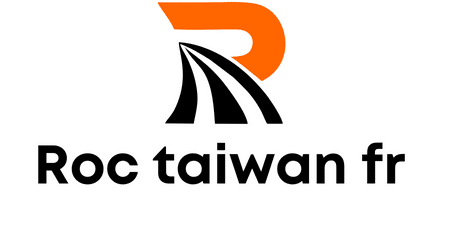What’s the Role of Sport Psychology in Managing Career Transitions for Retired Athletes?

In this age of information, the study of sports psychology grows to encompass a broader range of topics and applications. As we delve deeper into this complex field, one emerging area of interest concerns the role it plays in managing career transitions for retired athletes. It’s a topic that is quickly gaining traction in academic circles, with articles appearing on databases like PubMed, doi, and Google Scholar. The pressure to develop relevant skills for a new career, maintain health, and adapt to a new life outside the world of competitive sports can be overwhelming. This article will explore how the principles of sports psychology can support athletes in this critical phase of their life.
The Athletic Career Transition: An Overview
With sports careers often ending before the age of forty, athletes must prepare for a second career following retirement. For many, this transition can be a daunting task. The life they’ve known, their identity as an athlete, and the routine that they’re accustomed to – all change abruptly. Sports psychology, however, can play a significant role in assisting athletes during this phase. It aids in understanding the emotional, cognitive, and physical changes that come with retirement and helps provide an action plan for a smoother transition.
En parallèle : How Do Elite Sprinters Structure Microcycle Training for Peak Performance at Major Events?
A comprehensive review of studies from PubMed and Google Scholar reveals that many athletes experience a range of psychological issues during this transition. These may include depression, loss of identity, and anxiety about the future. It is here that sport psychology steps in, providing strategies and interventions to help athletes cope with these problems.
Understanding the role of sports psychology in the career transition of an athlete can aid in developing support systems, programs, and resources to assist them. It can help create a nurturing environment that encourages athletes to explore their potential beyond sports.
Avez-vous vu cela : What’s the Latest Research on Overcoming Plateau Syndrome in Competitive Weightlifters?
The Role of Sport Psychology in Life Skills Development
A significant aspect of career transition for athletes involves the development of life skills. These skills can range from financial management and communication skills to problem-solving and time management. Here too, sport psychology proves to be a useful tool. The principles of this discipline can be applied to teach athletes these skills in a familiar context.
A 2019 study published on PubMed (doi: 10.1177/2158244019885157) showed that athletes are more receptive to learning life skills when they are taught using sport-related scenarios. For example, communication skills can be taught by analyzing interactions with coaches and teammates. The same study also emphasized the importance of including life skills training in athletic programs to prepare athletes for transition well in advance.
The Impact on Health and Well-being
The end of an athletic career also signifies a major shift in an athlete’s health and fitness routine. Staying in top physical condition is no longer a job requirement, which can be a drastic change. Sport psychology can play a pivotal role in helping athletes adapt to these changes and maintain their health post-retirement.
A study found on Google Scholar (doi: 10.1080/2159676X.2019.1578251) explored the role of sports psychologists in supporting athletes in developing new fitness routines. It showed that athletes were more likely to maintain a healthy lifestyle if they received guidance and support in the initial stages of their transition.
Moreover, sport psychology can help athletes deal with mental health issues. The sudden change in lifestyle and the end of regular competitive excitement can lead to mental health problems. Sport psychologists can work with athletes to recognize these issues and develop coping mechanisms.
The Use of Data in Transition Support
In recent years, data has become a powerful tool in sports psychology. Information about an athlete’s career, training routines, performance metrics, and even psychological assessments can be used to create a personalized transition plan.
A review of articles on doi and PubMed demonstrates the increasing use of data in sports psychology. This information can help identify potential difficulties an athlete might face during transition and develop strategies to mitigate them. It can also predict the skills an athlete might excel in post-retirement, making the transition smoother and more efficient.
The Future of Career Transition Support
As the field of sports psychology continues to evolve, so does the support it can offer to athletes transitioning into retirement. Emerging research on athlete career transition is paving the way for more effective support programs and resources.
A review of studies available on Google Scholar (doi: 10.1080/1612197X.2019.1611900) shows that sports organizations are beginning to understand the importance of providing career transition support to athletes. There is an increasing emphasis on comprehensive transition programs that include psychological support, life skills training, health management, and career counseling.
The role of sports psychology in managing career transitions for retired athletes is significant and multifaceted. It touches on every aspect of an athlete’s life, from their mental health to their skill development and future career prospects. By focusing on this critical area, we can ensure that our athletes receive the support they need to transition smoothly into the next phase of their lives.
Sport Psychology in Facilitating Career Planning for Athletes
Sport psychology plays a crucial role in facilitating career planning for athletes. Notably, it helps athletes to identify professional opportunities and possibilities beyond sports. Many athletes often have a limited view of their career opportunities after retirement from sports. This narrowed perspective can result in anxiety and uncertainty about the future.
A study found on Google Scholar (doi: 10.1080/1612197X.2019.1611900), highlighted the importance of career planning in the athlete retirement transition process. It revealed that athletes who had a clear career plan before retirement were less likely to experience depression and anxiety post-retirement.
Through sports psychology, athletes can learn to assess their skills, interests, and values and explore how these can be translated into a new career. Dealing with athlete identity loss is also a significant part of this process. By helping athletes to view their athletic identity as a part of their overall identity and not the entirety of it, sport psychologists can make the transition process easier.
These professionals can also help athletes to set realistic career goals and develop strategies to achieve them. They can provide athletes with resources and information on various career options, helping them to make informed decisions about their future.
The Conclusion: The Indispensable Role of Sport Psychology in Athlete Career Transition
The role of sport psychology in managing career transitions for retired athletes cannot be overemphasized. It is an essential tool in helping athletes navigate the complex and often challenging process of retirement from sport. From dealing with mental health issues and developing life skills, to facilitating career planning and health management, sports psychology plays a pivotal role.
The information available on databases like PubMed, Google Scholar, and doi underscores the importance of sports psychology in this transition process. The research shows that athletes who receive psychological support during their transition often have a smoother adjustment and are more likely to lead fulfilling lives post-retirement.
However, for sport psychology to be effectively utilized in athlete retirement transition, there needs to be a systematic approach. This approach should encompass all aspects of the athlete’s life, including emotional, cognitive, and physical changes, and should be tailored to the individual needs of the athlete.
Furthermore, sports organizations must recognize the importance of providing transition support. They should invest in comprehensive transition programs that would help athletes cope with the challenges of retirement from sports. Such programs should offer psychological support, life skills training, health management, and career counseling.
The role of sports psychology in managing career transitions for retired athletes is crucial. As this field continues to evolve, we can only expect its influence and significance in facilitating smooth career transitions for athletes to grow. This underscores the need for more research in this area, and the development of more resources and programs, to help our athletes transition successfully into the next phase of their lives.
